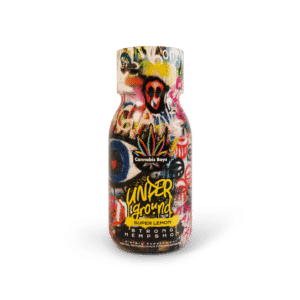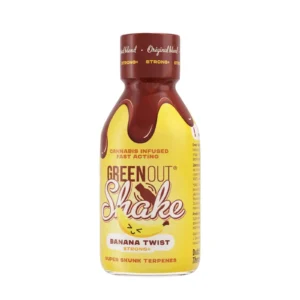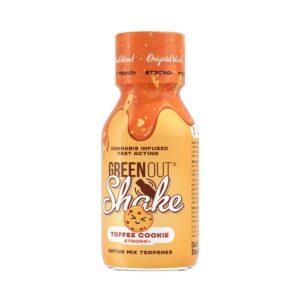According to WHO, depression will soon be the most common disease in the world. It affects over 350 million people and most often affects people aged 20-40. Every year, over 800,000 depressed people commit suicide . Medical cannabis is an increasingly popular method of treating depression or is used to support other therapeutic methods.
How is depression diagnosed?
The diagnostic criteria for depression were developed by the American Psychiatric Association and are included in the Classification of Mental Disorders (the current version is DSM-5), which is used by psychiatrists.
According to DSM-5, clinical depression can be considered if a person shows at least: 5 of the following symptoms, with at least one of the first two symptoms present:
depressed mood,
decreased interest/pleasure,
sleep disorders,
weight change,
difficulty thinking,
difficulty concentrating,
difficulty making choices and decisions,
agitation or slowness of movement,
lack of energy,
feeling of constant fatigue,
significantly low self-esteem,
excessive or inappropriate feeling of guilt,
suicidal thoughts and attempts,
thoughts about death that are not limited to the fear of death itself.
The basis for the diagnosis of depression is a depressive episode, i.e. a set of symptoms that lasts for at least 14 days. Depressive episodes are divided according to the intensity of symptoms into mild, moderate and severe . The ICD-10 classification of diseases also distinguishes between a depressive episode and recurrent depression, none of which can be related to a severe life loss, e.g. bereavement, bankruptcy or illness .
Assessment of the intensity of symptoms in the context of the patient's current life is the responsibility of a psychiatrist and clinical psychologist. These specialists also take into account the cultural context, forms of functioning adopted in the family, health and life situation and the patient's personality. Each patient has their own way of life and their own history - what is a disturbing symptom for one person will be normal for another.
Treatment of depression
The standard way to help people with depression is to combine psychotherapy with pharmacological treatment.
Antidepressants
There are many antidepressant drugs available, and further research is constantly being conducted on substances that have the potential to help people with depression. A common practice is combined treatment: patients take two or three different drugs, the action of which complements each other and gives an optimal effect.
Sometimes, medications do not improve the well-being of a person suffering from depression. In such a situation, doctors may decide to increase the dose, change the drug or add another substance that may help achieve a therapeutic effect.
Psychotherapy in depression
Psychotherapy in depression plays an important role, the patient with the support of the therapist:
experiences emotions and learns to express them in a healthy way,
works on beliefs that may be inadequate and harmful,
learns healthy ways of reacting to everyday situations.
CBD and depression
How does CBD affect the body of a depressed person?
Cannabinoids bind to the receptors of the endocannabinoid system and, through them, regulate many physiological processes occurring in the body, including: secretion of neurotransmitters. They, in turn, influence our mood and well-being.
Research conducted in the 2000s shows that patients with depression often suffer from a deficiency of endocannabinoids, i.e. substances naturally produced by the body that stimulate the endocannabinoid system.
Therefore, the goal of treatment may be to regulate the functioning of the endocannabinoid system, which, in turn, when it works properly, will regulate the functioning of other systems in the body, e.g. stimulate the secretion of the appropriate amount of mood-regulating neurotransmitters.
Preclinical studies have observed that the endocannabinoid system can optimize the secretion and action of neurotransmitters, which may translate into antidepressant and anti-anxiety effects. The mechanism of action is similar to that of antidepressants: strengthening the endocannabinoid system may increase the secretion of serotonin and norepinephrine.
In a study conducted on rats, a similar relationship between endocannabinoid levels and stress was observed: endocannabinoid levels in rats that were exposed to stress were significantly lower than in the group that did not experience much stress.
Using CBD for depression
Endocannabinoids, which are too low in depressed patients, bind to the same ESC receptors as CBD and THC, so hemp cannabinoids may regulate mood instead.
CBD and depression – a study involving patients
The results of questionnaire studies with patients show that people undergoing cannabis therapy observed a lower intensity of symptoms immediately after taking the drug .
Scientists point out that, according to study participants, dried hemp with a lower THC concentration and a higher CBD concentration was a more effective antidepressant substance.
However, no long-term antidepressant effect was observed after the end of therapy . Similar conclusions can be found in reports from other studies.
Scientists indicate the need to conduct further, controlled studies aimed at further searching for ways to achieve long-term therapeutic effects in cannabis therapy.
If you think you have depression, it is NOT enough to just take CBD oil. Only a psychiatrist can make a diagnosis and the doctor can recommend specific treatment methods. Medical cannabis treatment also have a form, dose and concentration appropriate for you, therefore it requires consultation with a psychiatrist.
You can find helpline numbers for people with depression here .









[…] it is worth taking a look at what scientists say about this. The current state of research on the effect of cannabis on the treatment of acne is not satisfactory, as there is still a lack of important clinical studies […]